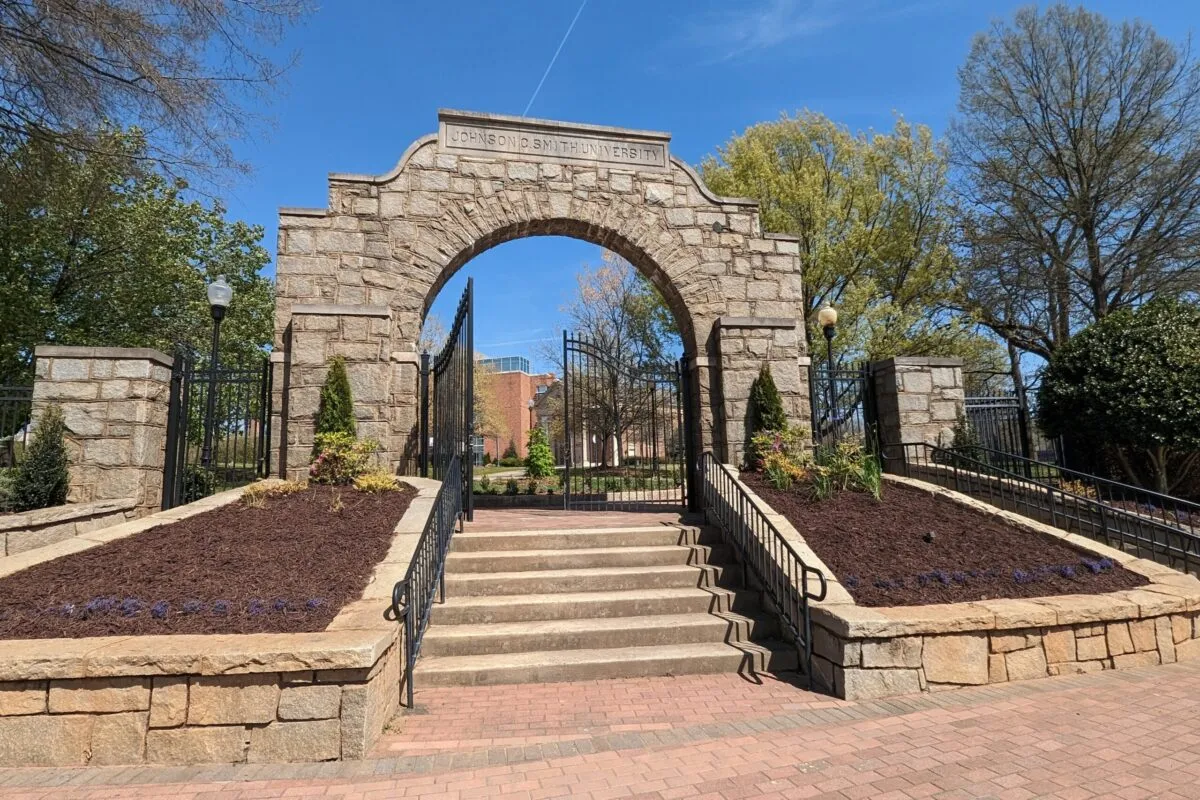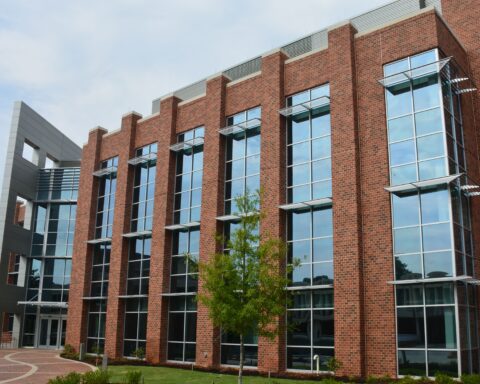Courtesy of John C. Smith University
The U.S. Department of Homeland Security recently announced that Johnson C. Smith University’s College of Science, Technology, Engineering and Mathematics (STEM) will receive a $1 million grant to build the next generation of STEM professionals who have a comprehensive education in dealing with natural disasters.
Associate Professor of Computer Science, Engineering and Mathematics Dr. Suryadip Chakraborty and fellow professor Dr. Awatif Amin applied for the grant which, totaling $1 million, is one of the largest government-funded academic grants in the institution’s history, with the help of the Government Sponsored Programs and Research (GSPAR) team.
“This award brings a wealth of benefits to our current students while leveraging collaborations to recruit motivated and talented future Golden Bulls,” said Dr. Patrick Martin, dean of the College of STEM. “The additions to the curriculum and experience this award provides JCSU students will ensure our students are well prepared and competitive for sought-after careers in cyber security and national disaster management. I commend Drs. Chakraborty and Amin for having the vision to develop this collaborative proposal and envision this program and its outcomes will serve as a model for other training programs across the nation.”
Chakraborty and Amin will serve as co-principal investigators of the grant entitled “Building a Next-Generation STEM Workforce to Engage, Prepare and Develop Skills in Studying a Comprehensive Education in Natural Disasters at Minority Serving Institutions.”
Chakraborty said he immigrated to the United States to earn a top education in his field of study.
“One part of my American dream was to receive the best education in the world,” he said. “People like me from outside of the U.S. have always seen America as a temple of scientific research. The world looks to American scientists and researchers for the next generation of solutions. The future leadership of America in this field will depend on how we are preparing our students today. They will be the solution makers of tomorrow. If we invest in those students and in STEM today, it is an investment for the future of the nation and the world.”
The STEM program at JCSU has been connected with DHS for several years and learned about the grant in 2022. The team began working on the grant proposal and decided to partner with UNC Chapel Hill and Stanley Community College.
Chakraborty explained the grant, which will be dispersed throughout a five-year budget period, will address nine components, including undergraduate research mentorship, a summer undergraduate research experience, student scholarships, reconstructing the cybersecurity minor curriculum, one-week boot camps to strengthen programming languages and a STEM day to offer networking opportunities to students in the program.
The grant will also fund faculty training, a CISCO Networking Academy and a state-of-the-art research lab that will house 25 new computers with high-power processors and ample storage for student training.
“I’m deeply humbled and grateful that DHS selected our institution to receive this grant,” said Chakraborty. “Historically, they only accept about five to 10 proposals each year. This is considered one of the most prestigious grants that faculty can earn in their career. Therefore, I am immensely grateful and thankful for their trust and faith that we can and will deliver what we’ve promised.”
Chakraborty said he is thankful for the help of the Division of Government Sponsored Programs and Research (GSPAR) at JCSU, as they have been instrumental in helping he and Amin secure the grant funding. The GSPAR team offered technical assistance on the proposal development, application submission and grant negotiation and will monitor the grant management along the way.
“By participating fully in Dr. Chakraborty’s DHS funded program, computer science students can anticipate embarking upon highly successful careers in coding, artificial intelligence, data science, bioinformatics and cyber security,” said Vice President of GSPAR Dr. Diane Bowles. “These are exciting times with awesome problem-solving opportunities for them.”
Bowles’ team on this project included Donnett Johnson, Teri Taylor, Anthony Hooks, Wanda Hall and Virginia Rowe-Anderson.


